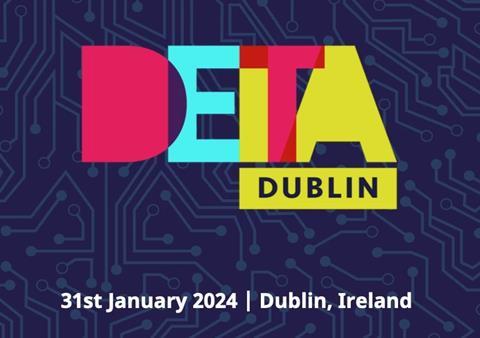The Diversity, Equity & Inclusion in Tech Awards Dublin is the go-to community to enhance DEI across the technology sector; allowing collaborative engagement in a space specifically created to support and open the door for the next generation of diverse leaders in Ireland.
Diversity, Equity and Inclusion (DEI) is by no means a new concept, but the case for championing it is stronger than ever, and although massive strides have been made, there has been a clear stagnation. And the case for DEI is watertight.
The Diversity, Equity & Inclusionin Awards Dublin, will look to provide a safe and supportive space for like-minded individuals to collaborate, support and champion the differences that make us unique, and ultimately help businesses to thrive.
“We have made it our mission to create a platform for diversity, equity and inclusion to be recognised, celebrated and encouraged, and this is your opportunity to help set the precedent and be part of the change, showing your workforce through action that equality matters.”
Nicola Dowdall, Managing Director.
DEI in Tech Awards - Dublin
The Diversity, Equity & Inclusion in Tech Awards Dublin is the go-to community to enhance DEI across the technology sector; allowing collaborative engagement in a space specifically created to support and open the door for the next generation of diverse leaders.
This initiative will bring together employees of all backgrounds and career levels within the technology industry, with the shared aim of creating a supportive ecosystem and championing equality across the workforce.
We will see senior technology business leaders, key decision makers and changemakers joined by their peers in HR and D&I roles from across the Technology industry engage with us to support, celebrate and recognise the individuals helping technology businesses to thrive.
View The Dublin Award Categories
The technological revolution has changed our daily lives and the world that we live in. But while technology has certainly become an agent of change, the real disruption has to happen on a human level.

According to a 2022 report from Dealroom, which analysed data on behalf of the UK’s Digital Economy Council, the UK tech industry is now valued at $1tn (£764bn), a milestone that has previously only been reached by the US and China.
It was revealed in 2021 that UK tech companies made up 38% of the combined valuation of European unicorns in 2021 – the highest percentage across the continent, with these figures firmly cementing the UK’s position as one of the world’s leading tech hubs.
Over the years, this technological revolution has changed our daily lives and the world that we live in, making our lives easier, faster, better, and more fun
“The Black Lives Matter movement has highlighted the challenges faced by black and ethnic minority groups in our communities, the plight of charities and supporting organisations supplying essential items and protective supplies for those most in need has been intensified, and the need for diversity, equity and inclusion in the workplace continues to be a prominent conversation in today’s society.”
And in the UK specifically, BEIS Analysis shows that if ethnic minority individuals were given full representation within the workforce, the labour market would reap benefits to the tune of £24 billion.
Furthermore, research by Accenture has indicated that 77% of employees and 80% of leaders with disabilities choose not to be transparent about their disability at work.
In 2023, these statistics simply cannot be ignored.
Research from Tech London Advocates has highlighted the lack of female or BIPOC (black, indigenous and people of colour) representation at board level, with a further 51% of industry leaders surveyed voicing concerns that the lack of diversity in the industry could cost the UK tech sector its world-leading position.
Similar research shows that LGBTQ+ employees are struggling with work in this pandemic world, moreso than their straight and cisgender peers.
In fact, LGBTQ+ respondents were 1.4 times as likely to cite acute challenges when it comes to workload increases, loss of workplace connectivity and a sense of belonging.



















No comments yet